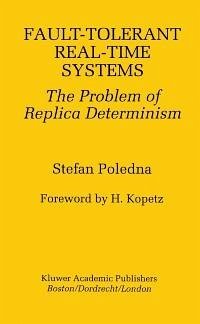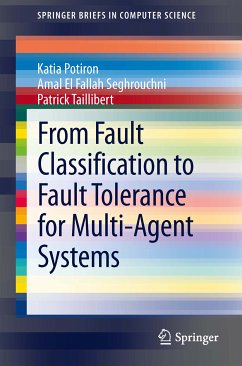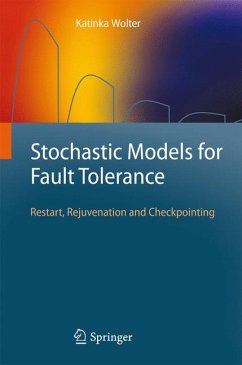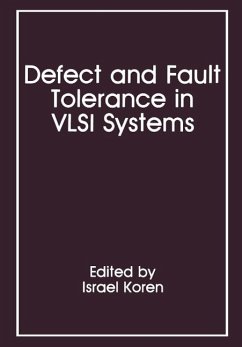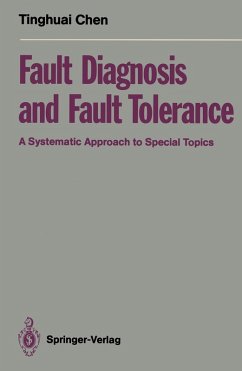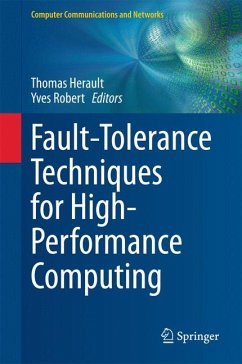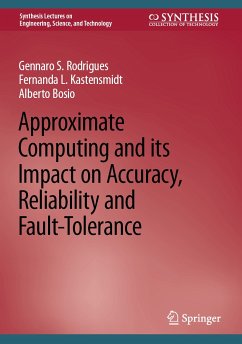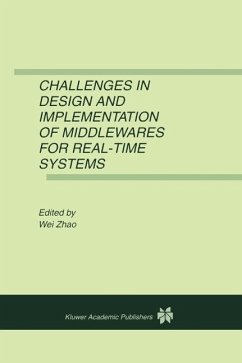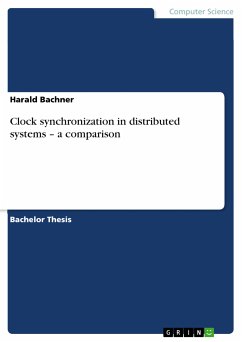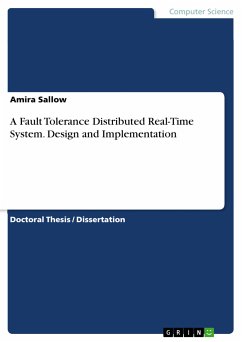
A Fault Tolerance Distributed Real-Time System. Design and Implementation (eBook, PDF)
Versandkostenfrei!
Sofort per Download lieferbar
Statt: 47,95 €**
36,99 €
inkl. MwSt. und vom Verlag festgesetzt.
**Preis der gedruckten Ausgabe (Broschiertes Buch)
Weitere Ausgaben:

PAYBACK Punkte
0 °P sammeln!
Doctoral Thesis / Dissertation from the year 2013 in the subject Computer Science - General, grade: 90, University of Mosul (College of Computer Sciences And Mathematics), language: English, abstract: Now a day completed real-time systems are distributed. One of the working area of real-time scheduling is distributed scheduling. Task scheduling in distributed systems is dealt with two levels: on the level of each processor (local scheduling), and on the level of the allocation of tasks to processors (global scheduling). In this thesis, a distributed real-time system with fault tolerance has be...
Doctoral Thesis / Dissertation from the year 2013 in the subject Computer Science - General, grade: 90, University of Mosul (College of Computer Sciences And Mathematics), language: English, abstract: Now a day completed real-time systems are distributed. One of the working area of real-time scheduling is distributed scheduling. Task scheduling in distributed systems is dealt with two levels: on the level of each processor (local scheduling), and on the level of the allocation of tasks to processors (global scheduling). In this thesis, a distributed real-time system with fault tolerance has been designed and called Fault Tolerance Distributed Real Time System FTDRTS. The system consists of heterogeneous processors act as servers and clients connected together via LAN communication network. This system has two types of scheduling schemes: (1) global model scheduling, (2) independent model scheduling for scheduling tasks in real time distributed manner. The time utility function TUF has been developed and called the DTUF (Developed TUF) function. This function gives another dimension and used to priorities' tasks, based on whether they are Urgent or Important, or both, or neither. A fault tolerance protocol called DRT-FTIP (Distributed Real Time - Fault Tolerance Integrity Protocol) has been developed. This protocol increases the integrity of the scheduling in distributed real time systems. The proposed Distributed Real-Time system with its scheduling algorithms and integrity protocol have been designed using the Java Remote Method Invocation (RMI) and use the Flight Reservation System as a case study. The simulation results of this proposed distributed realtime system using global scheduling algorithm gives Deadline Satisfaction Ratio (DSR) equal 95%. While Accrued Utility Ratio (AUR) equal 0.7286.
Dieser Download kann aus rechtlichen Gründen nur mit Rechnungsadresse in A, B, BG, CY, CZ, D, DK, EW, E, FIN, F, GR, HR, H, IRL, I, LT, L, LR, M, NL, PL, P, R, S, SLO, SK ausgeliefert werden.




